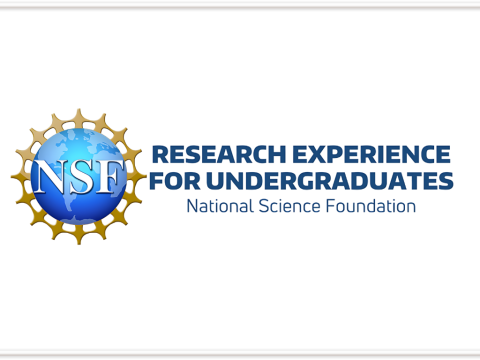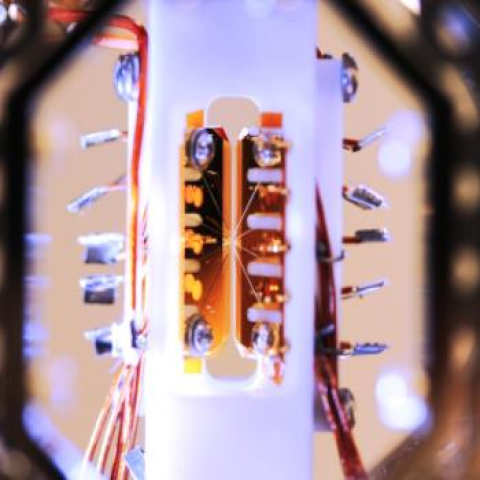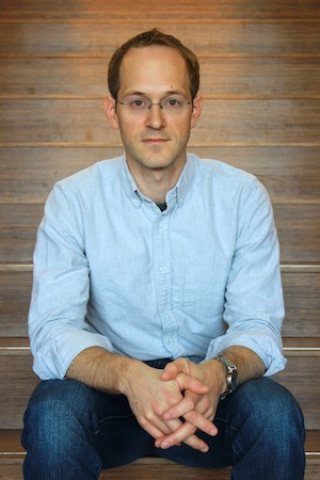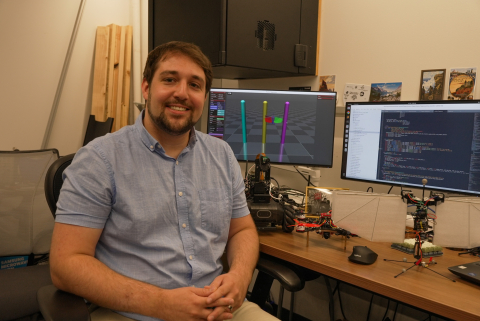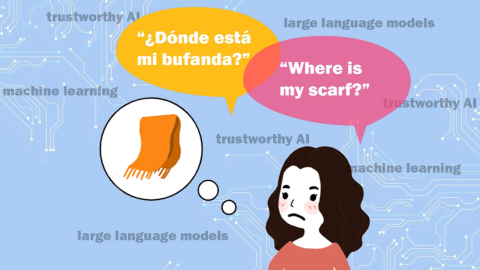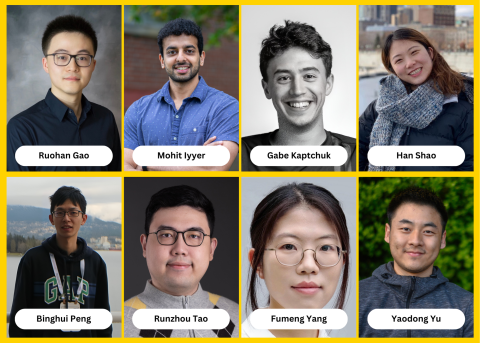Recent News & Accomplishments
2024
The National Science Foundation-sponsored program offered practical computer science research experience to students from across the nation.
The University of Maryland's Department of Computer Science has successfully concluded its 12th annual Research Experiences for Undergraduates (REU) program , sponsored by the National Science Foundation (NSF). From June 3 through August 9, the program brought together 18 undergraduate and three high school students from across the United States, providing them with hands-on research experience in cutting-edge projects that focus on machine learning, artificial intelligence, quantum computing and algorithms. Participants worked on various projects under the mentorship of UMD faculty and... read more
The new program expands quantum course offerings, allowing students to explore the field from multiple angles.
The University of Maryland will offer a new minor in quantum science and engineering beginning in spring 2025. Students in the minor will learn about quantum computing technologies, algorithms for quantum computers, characteristics of quantum materials, and sensing and noise in quantum systems. “Our new quantum minor complements our well-recognized strength in quantum research and helps prepare our undergraduate students to join the workforce in this emerging field or attend graduate school and contribute to future quantum research,” said Sennur Ulukus, chair of UMD’s Department of Electrical... read more
Childs will receive the award for his work in quantum algorithms at the September 18 Convocation.
University of Maryland Computer Science Professor Andrew Childs will receive the 2024 Kirwan Faculty Research and Scholarship Prize . He will receive the award at the Faculty & Staff Convocation on September 18, 2024, in the Memorial Chapel. A leading scientist in the field of quantum algorithms, Childs has helped develop both theoretical foundations and practical applications for quantum computers, which have the potential to address problems that are beyond the reach of traditional computational methods. Childs earned his B.S. in physics at the California Institute of Technology and his... read more
Levi Burner, a sixth-year doctoral candidate, balances research, service and mentoring as the lab manager for the University of Maryland's Perception and Robotics Group.
Tiny autonomous drones designed to mimic and support bee populations. Larger drones that can navigate difficult terrain with the agility of a hummingbird. Robots that learn to cook by watching YouTube videos. These projects, and many more, were conceived, developed and tested by the University of Maryland’s Perception and Robotics Group , co-led by Yiannis Aloimonos , a professor of computer science, and Cornelia Fermüller , a research scientist in the University of Maryland Institute for Advanced Computer Studies (UMIACS). A common thread in much of the group’s work is the ability to build... read more
Tao will join UMD in August 2024, focusing on quantum computing and programming languages.
Runzhou Tao will join the University of Maryland’s Department of Computer Science as an assistant professor in August 2024. Tao's research focuses on the intersection of programming languages, operating systems and quantum computing. "I am very excited to join the prestigious Department of Computer Science at UMD," Tao said. "I look forward to collaborating with talented colleagues and contributing to cutting-edge research." Tao earned a Ph.D. in Computer Science from Columbia University and a bachelor's degree from Tsinghua University, where he conducted research on theoretical computer... read more
Twenty-six Maryland high school students completed a two-week AI and programming camp at the University of Maryland.
Twenty-six high school students, most from Maryland, recently completed a two-week camp at the University of Maryland focused on developing skill sets needed to navigate the constantly expanding world of artificial intelligence (AI) and computer programming. A joint effort between the Institute for Trustworthy AI in Law & Society (TRAILS) and the Iribe Initiative for Inclusion and Diversity in Computing (I4C), the TRAILS AI Summer Academy featured mentoring from UMD faculty, a field trip to an interactive museum focused on language, and group projects that covered hot topics like neural... read more
In his new role, Porter will co-lead UM-IHC, an academic health research institute that serves as a hub for health computing innovation and collaboration in Montgomery County.
Adam Porter has been named co-executive director of the University of Maryland Institute for Health Computing (UM-IHC), effective July 28, 2024. Porter is a professor of computer science at the University of Maryland, College Park (UMCP) and has served since 2015 as executive director of the Fraunhofer USA Center Mid-Atlantic , an applied research center affiliated with UMCP. In his new role, Porter will co-lead UM-IHC, an academic health research institute in North Bethesda, Maryland, that serves as a hub for health computing innovation and collaboration in Montgomery County. Founded in... read more
Kaptchuk will join UMD in August 2024, bringing expertise in cryptography and privacy.
Gabriel Kaptchuk will join the University of Maryland’s Department of Computer Science as an assistant professor in August 2024. One of eight new tenure-track faculty members, Kaptchuk's research focuses on cryptography and privacy. “I’m thrilled to be joining UMD’s Computer Science department,” Kaptchuk said. I couldn’t imagine a better place to pursue my research agenda. In particular, joining an amazing group of colleagues in the nation’s capital is a unique combination.” Kaptchuk will also be affiliated with the Maryland Cybersecurity Center (MC2) and the University of Maryland Institute... read more
Researchers in the Institute for Trustworthy AI in Law & Society (TRAILS) are working with a local interactive museum to explore how people from different backgrounds rely on imperfect language translations generated by artificial intelligence (AI). The project, known as “Lost in Translation,” is part of a series of ongoing research efforts coordinated by the Language Science Station at Planet Word , an immersive venue in downtown Washington, D.C., that is focused on curating a love of language. It joins University of Maryland computational linguists and data scientists with other... read more
The new faculty members, with expertise in various cutting-edge research areas, will enhance the department’s academic and research capabilities.
The University of Maryland’s Department of Computer Science is set to welcome a cohort of eight new tenure-track faculty. The faculty members, with research expertise spanning a wide range of cutting-edge areas, are expected to enhance the department’s academic and research capabilities. "We are excited to welcome our newest faculty members," said Department Chair Matthias Zwicker , who holds the Elizabeth Iribe Chair for Innovation and the Phillip H. and Catherine C. Horvitz Professorship. "Their perspectives will drive forward impactful research and raise our level of excellence for years... read more
